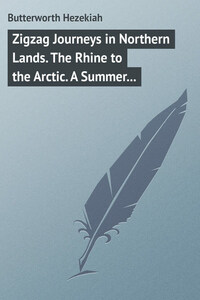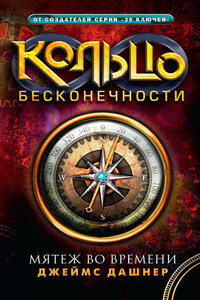This fifth volume of the Zigzag books, in which history is taught by a supposed tour of interesting places, might be called a German story-book.
It was the aim of “Zigzag Journeys in Europe” and “Zigzag Journeys in Classic Lands” to make history interesting by stories and pictures of places. It was the purpose of “Zigzag Journeys in the Orient” to explain the Eastern Question, and of “Zigzag Journeys in the Occident” to explain Homesteading in the West.
The purpose of this volume is the same as in “Europe” and “Classic Lands.” A light narrative of travel takes the reader to the places most conspicuously associated with German history, tradition, literature, and art, and in a disconnected way gives a view of the most interesting events of those Northern countries that once constituted a great part of the empire of Charlemagne.
It is the aim of these books to stimulate a love of history, and to suggest the best historical reading. To this end popular stories and pictures are freely used to adapt useful information to the tastes of the young. But in every page, story, and picture, right education and right influence are kept in view.
In this volume many German legends and fairy stories have been used, but they are so introduced and guarded as not to leave a wrong impression upon the minds of the young and immature.
CHAPTER I.
THE RIVER OF STORY AND SONG
THE Rhine! River of what histories, tragedies, comedies, legends, stories, and songs! Associated with the greatest events of the history of Germany, France, and Northern Europe; with the Rome of Cæsar and Aurelian; with the Rome of the Popes; with the Reformation; with the shadowy goblin lore and beautiful fairy tales of the twilight of Celtic civilization that have been evolved through centuries and have become the household stories of all enlightened lands!
A journey down the Rhine is like passing through wonderland; wild stories, quaint stories, legendary and historic stories, are associated with every rood of ground from the Alps to the ocean. It is a region of the stories of two thousand years. The Rhine is the river of the poet; its banks are the battle-fields of heroes; its forests and villages the fairy lands of old.
When Rome was queen of the world, Cæsar carried his eagles over the Rhine; Titus sent a part of his army which had conquered Jerusalem to the Rhine; Julian erected a fortress on the Rhine; and Valentinian began the castle-building that was to go on for a thousand years.
The period of the Goths, Huns, Celts, and Vandals came, – the conquerors of Rome; and the Rhine was strewn with Roman ruins. Charlemagne cleared away the ruins, and began anew the castle-building. A Christian soldier in one of the legions that destroyed Jerusalem and tore down the temple, first brought the Gospel to the Rhine. His name was Crescaitius. He was soon followed by missionaries of the Cross. Christianity was established upon the Rhine soon after it entered Rome.
The great conquests of modern history are directly or indirectly associated with the wonderful river; Cæsar, who conquered the world, crossed the Rhine; Attila, who conquered the city of the Cæsars; Clovis, who founded the Christian religion in France; and Charlemagne, who established the Christian church in Germany. Frederick Barbarossa and Frederick the Great added lustre to its growing history, and Napoleon gave a yet deeper coloring to its thrilling scenes.
When the Northern nations shattered the Roman power, people imagined that the dismantled castles of the Rhine became the abodes of mysterious beings: spirits of the rocks, forests, fens; strange maidens of the red marshes; enchanters, demons; the streams were the abodes of lovely water nymphs; the glens of the woods, of delightful fairies.
Into these regions of shadow, mystery, of heroic history, of moral conflicts and Christian triumphs, it is always interesting to go. It is especially interesting to the American traveller, for his form of Christianity and republican principles came from the Rhine. Progress to him was cradled on the Rhine, like Moses on the Nile. In the Rhine lands Luther taught, and Robinson of Leyden lived and prayed; and from those lands to-day comes the great emigration that is peopling the golden empire of America in the West. “I would be proud of the Rhine were I a German,” said Longfellow. “I love rivers,” said Victor Hugo; “of all rivers I prefer the Rhine.”
It is our purpose in this story-telling volume to relate why the Zigzag Club was led to make the Rhine the subject of its winter evening study, and to give an account of an excursion that some of its members had made from Constance to Rotterdam and into the countries of the North Sea.
“All hail, thou broad torrent, so golden and green,
Ye castles and churches, ye hamlets serene,
Ye cornfields, that wave in the breeze as it sweeps,
Ye forests and ravines, ye towering steeps,
Ye mountains e’er clad in the sun-illumed vine!
Wherever I go is my heart on the Rhine!
“I greet thee, O life, with a yearning so strong,










